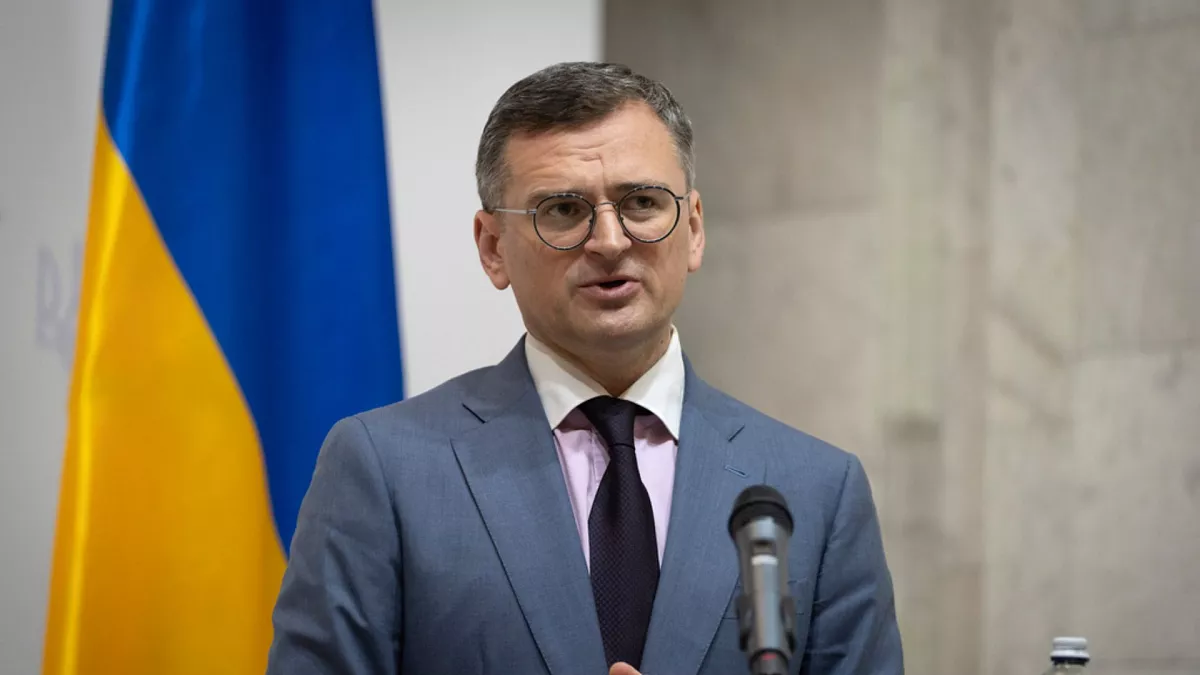KYIV — Ukrainian Foreign Minister Dmytro Kuleba has resigned, as announced by the country’s parliamentary speaker on Wednesday. This marks a significant shift in Kyiv’s leadership amid the largest government overhaul since Russia’s invasion of Ukraine in 2022.
The reshuffle of President Volodymyr Zelensky’s wartime administration comes at a critical juncture, with Russian forces intensifying their offensive in the east and launching fresh attacks on cities.
On Tuesday night, Lviv, a western city typically less affected by the conflict, was struck by missiles, resulting in seven deaths.
Kuleba, who has held the foreign minister role since 2020, played a crucial part in Ukraine’s efforts to secure foreign weaponry and advocate for relaxed restrictions on its use, especially for repelling bombardments.
Last spring, Kuleba was instrumental in pushing for the transfer of unused Patriot air defense systems from other countries to Ukraine, warning of the risks of delayed deliveries.
Ruslan Stefanchuk, the Ukrainian parliamentary speaker, shared a handwritten resignation letter from Kuleba, dated September 4, requesting lawmakers to accept his resignation.
In addition to Kuleba, several senior Ukrainian officials resigned recently, including arms chief Oleksandr Kamyshin, Justice Minister Denys Maliuska, Deputy Prime Ministers Iryna Vereshchuk and Olha Stefanishyna, as well as Environment Minister Ruslan Strilets and Vitaliy Koval, head of the state property fund.
Some of these officials are anticipated to take up new roles shortly.
As the conflict drags into its 30th month, Kyiv seeks new strategies to counter Russian advances. President Zelensky plans to present a “victory plan” during an upcoming visit to the United States, where November’s presidential election could influence continued support for Ukraine.
“The coming autumn will be crucial for Ukraine. Our state institutions must be aligned to achieve the necessary results,” Zelensky said in his address on Tuesday.
Recent weeks have seen Russia escalate attacks on Ukrainian cities almost daily. A missile strike on a military institute and nearby hospital in Poltava on Tuesday resulted in over 50 deaths. Russia described this as an attack on a training center for armed forces with foreign instructors.
The Lviv attack, which hit a residential area, killed at least seven people, including three children. Mayor Andriy Sadoviy shared a photo of a family who perished in the strike, highlighting the tragedy.
Another attack on Kryvyi Rih injured at least five civilians, with recent assaults also targeting Kyiv and Kharkiv, the latter being particularly vulnerable due to its proximity to the Russian border.
Ukraine continues to urge its allies, particularly the United States, to lift restrictions on Western weapons to enable long-range strikes inside Russia. While some restrictions were eased in May following a cross-border attack into the Kharkiv region, Ukrainian officials argue that more action is needed.
In a recent CNN interview before his resignation, Kuleba stressed the need for Western nations to decide on allowing strikes against military airfields in Russia and to provide more missiles. “This isn’t complicated,” he said. “It’s simply a matter of timely decisions.”
Last month, Ukraine carried out a surprise attack in Russia’s Kursk and Belgorod regions, likely aiming to divert Russian troops and exert pressure on President Putin. Despite Kyiv’s control over some Russian territory and the capture of numerous Russian POWs, Putin remains focused on the eastern front.
Also read: Armed Gang Drops President Mnangagwa Son’s Name in Mining Extortion Racket

For comments, Feedback and Opinions do get in touch with our editor on WhatsApp: +44 7949 297606.
